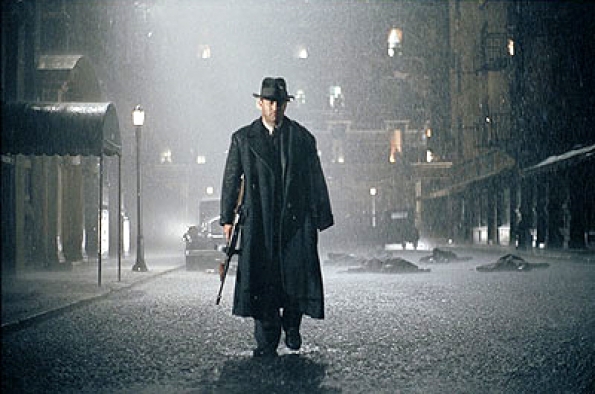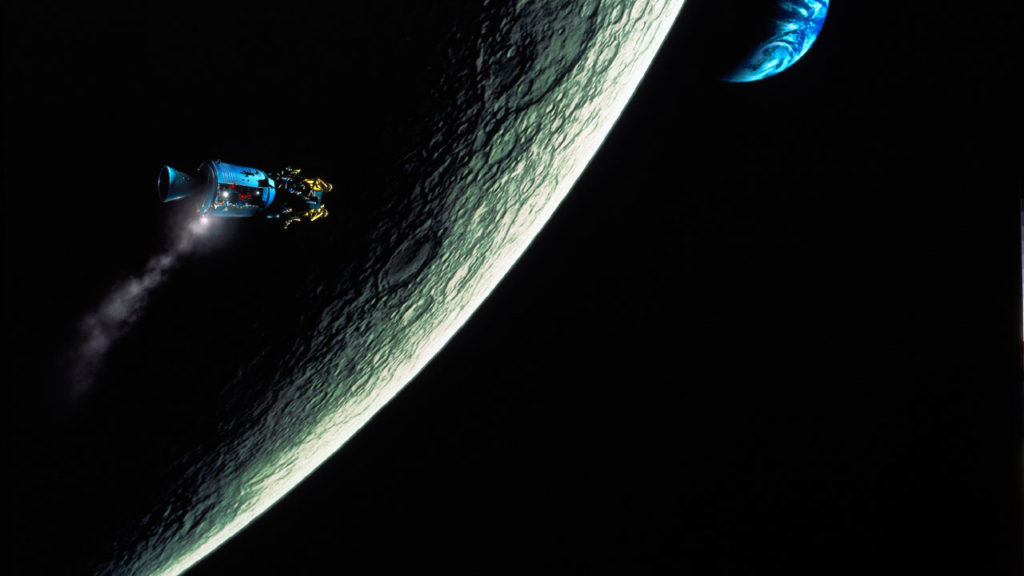A Beautiful Day in the Neighborhood (2019)
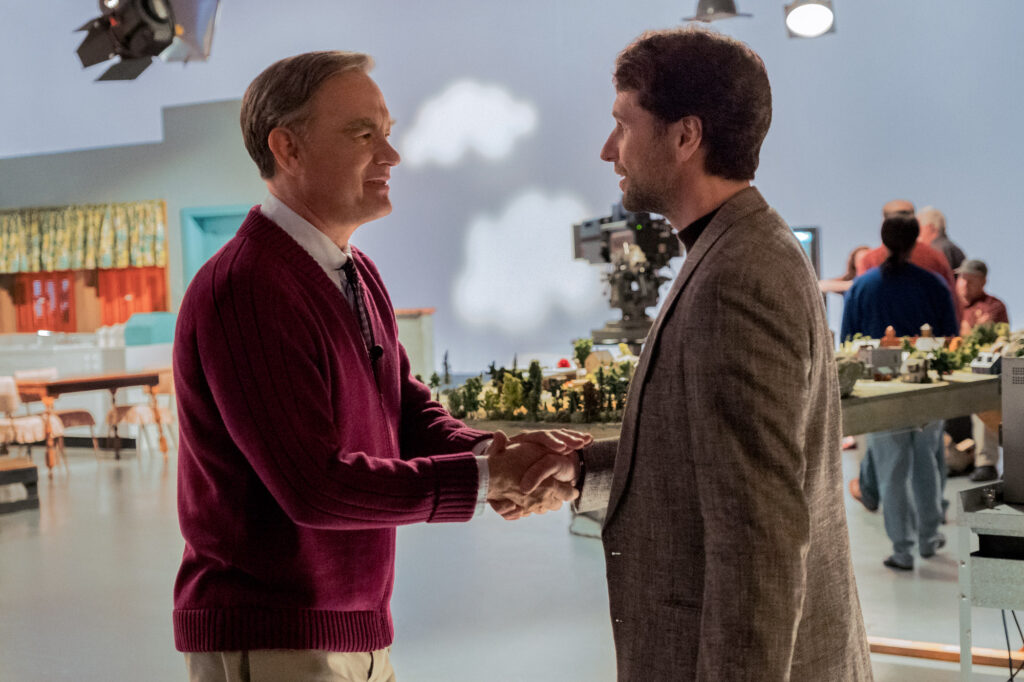
DIRECTOR: Marielle Heller
CAST: Tom Hanks, Matthew Rhys, Susan Kelechi Watson, Chris Cooper
REVIEW:
A Beautiful Day in the Neighborhood, loosely based on a 1998 Esquire article “Can You Say Hero?” by journalist Tom Junod (with some names changed), is a well-intentioned, feel good ode to beloved television icon Fred Rogers (better-known simply as Mr. Rogers), whose children’s show Mister Rogers’ Neighborhood ran from 1968 to 2001 (Rogers passed away in 2003). To that end, A Beautiful Day in the Neighborhood is an inoffensive, sweetly sentimental little movie whose quietly affecting moments sometimes get lost amidst its own treacly earnestness (though, considering I might apply those last words to the show it’s depicting, maybe I’m just not the target audience). Those with nostalgic fond memories of the late Mr. Rogers might find it a moving experience, while those indifferent or unfamiliar with the subject might be unimpressed.
Continue reading
The Post (2018)
CAST: Meryl Streep, Tom Hanks
REVIEW:
The Post won’t appeal to everyone—it’s a predominantly dry, talky affair full of scenes of stressed-out people in smoky rooms and stacks of papers debating the course of action—-but for those who appreciate docudramas celebrating the triumph of investigative journalism over power, it’s a stirring spiritual brother to movies like All the President’s Men (to which it serves as a sort of direct prequel) and Spotlight. In its portrayal of the free press versus an American President skirting the limits of his authority, The Post feels timely and relevant, and stresses the importance of an independent press. The Supreme Court’s 1971 ruling that “the press exists to serve the governed, not the governors” is worth recalling today. Continue reading
Inferno (2016)
CAST: Tom Hanks, Felicity Jones, Irrfan Khan, Sidse Babett Knudsen, Omar Sy, Ben Foster, Ana Ularu
REVIEW:
If nothing else, Inferno might hammer the final nail in the coffin of Sony’s increasingly inexplicable determination to make Robert Langdon—the protagonist of Dan Brown’s pulpy book series—into a “franchise” headliner. Dry, professorial Langdon isn’t exactly 007, and The Da Vinci Code was only a moderate box office success, while Angels & Demons didn’t do much business worth writing home about, but Sony insisted on forging ahead. With Inferno already opening weak, it might be time to stop adapting Dan Brown books. If you’re one of the seemingly relatively few people—including myself—who moderately enjoy these movies, Inferno offers up largely more of the same, but isn’t as good as the unevenly-paced but sporadically fascinating Da Vinci Code and doesn’t represent a compelling reason to rush to a theater near you. Continue reading
Cloud Atlas (2012)
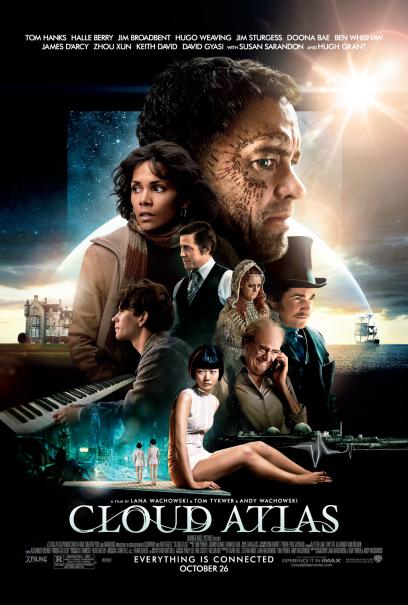 DIRECTOR: Andy Wachowski, Lana Wachowski, Tom Tykwer
DIRECTOR: Andy Wachowski, Lana Wachowski, Tom Tykwer
CAST: Tom Hanks, Halle Berry, Jim Broadbent, Hugo Weaving, Jim Sturgess, Ben Whishaw, Doona Bae, James D’Arcy, Hugh Grant, Susan Sarandon, Keith David, David Gyasi
REVIEW:
The film adaptation of David Mitchell’s 2004 novel, a German production co-directed by the Wachowski siblings behind The Matrix and German director Tom Tykwer, is nothing if not ambitious. Continue reading
Angels & Demons (2009)
DIRECTOR: Ron Howard
CAST:
Tom Hanks, Ewan McGregor, Ayelet Zurer, Stellan Skarsgard, Pierfrancesco Favino, Armin Mueller-Stahl, Nikolaj Lie Kaas, Thure Lindhardt
REVIEW:
While Dan Brown’s novel Angels & Demons chronologically took place before The Da Vinci Code, the movie is a sequel to the 2006 Ron Howard-Tom Hanks film. In the wake of scathing reviews dissmissing the first as leaden and ploddingly-paced (which I did not, for the most part, agree with), Howard obviously took a few steps here to make Angels & Demons more conventionally cinematic, but despite a faster, somewhat more action-oriented pace, Angels & Demons is a close cousin to its predecessor, and whether that is a good thing or a bad thing will largely depend on your opinion of The Da Vinci Code. Continue reading
The Da Vinci Code (2006)
DIRECTOR: Ron Howard
CAST:
Tom Hanks, Audrey Tautou, Ian McKellen, Jean Reno, Paul Bettany, Alfred Molina, Jürgen Prochnow
REVIEW:
Ron Howard’s film adaptation of Dan Brown’s novel The Da Vinci Code was preceded by an extraordinary amount of controversy over certain of its plot points which seemed to take on a life of its own, raising the movie and the theological and historical questions it raised into something greater than the film itself. Continue reading
Road to Perdition (2002)
CAST: Tom Hanks, Paul Newman, Jude Law, Tyler Hoechlin, Daniel Craig, Stanley Tucci, Jennifer Jason Leigh, Dylan Baker, Ciaran Hinds, Liam Aiken
REVIEW:
An adaptation of a graphic novel by Max Allan Collins and illustrated by Richard Piers Rayner, and produced by such illustrious names as Dean Zanuck, Richard D. Zanuck, and Steven Spielberg, Road to Perdition marked Sam Mendes’ eagerly-anticipated next project following his Oscar-winning American Beauty. It’s a venture into the gangster genre, but what it’s really about at its core is the relationships between fathers and sons. The result is visually splendorous and technically accomplished but a little emotionally remote, and viewers wanting a more action-packed gangster yarn may be bored by the deliberate, unhurried pace. Nonetheless, for fans of the gangster genre, Road to Perdition is a sumptuous and handsomely-crafted entry. Continue reading
The Green Mile (1999)
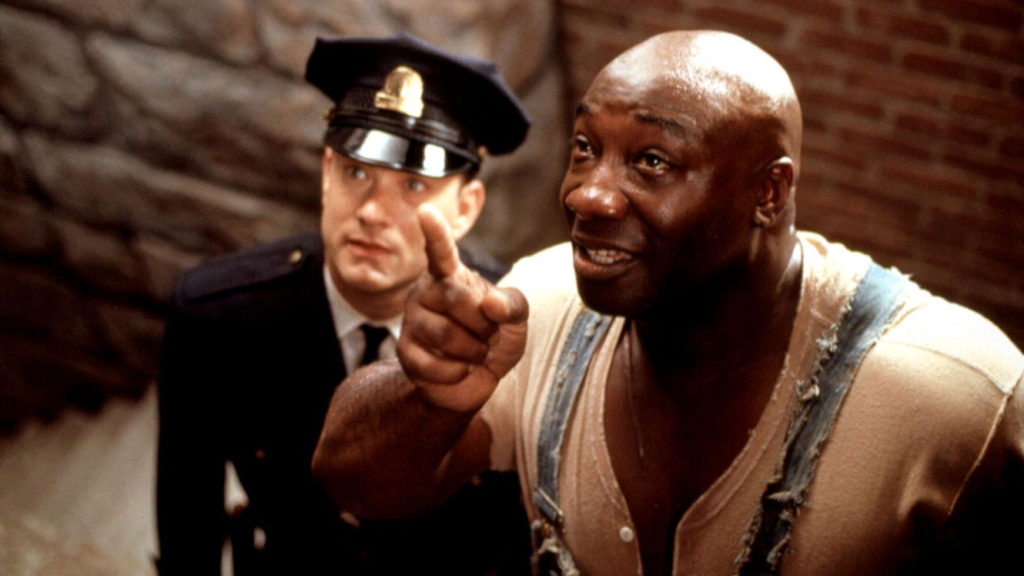
DIRECTOR: Frank Darabont
CAST: Tom Hanks, Michael Clarke Duncan, David Morse, Bonnie Hunt, Doug Hutchison, Sam Rockwell, James Cromwell, Patricia Clarkson, Barry Pepper, Jeffrey DeMunn, Michael Jeter, Graham Greene, Gary Sinise, Dabbs Greer, Harry Dean Stanton, William Sadler
REVIEW:
For the second convergence of Stephen King and Frank Darabont, following 1994’s The Shawshank Redemption, lightning has struck twice. The two films stand tall together as not only the best book-to-film adaptations of King’s prolific works, but also as great motion pictures period. It’s only Darabont’s second film since his impressive debut with Shawshank, but it demonstrates that the previous movie was not a one-hit wonder. Like Shawshank, The Green Mile is a well-crafted, emotionally powerful drama that requires a sizable commitment of time and attention, but the rewards are worth the effort.
Continue readingApollo 13 (1995)
CAST: Tom Hanks, Bill Paxton, Kevin Bacon, Gary Sinise, Ed Harris, Kathleen Quinlan
For those old enough to have watched the April 1970 Apollo 13 crisis unfold live on television, Ron Howard’s Apollo 13 may bring back strong memories. For those who did not experience it at the time, it may serve as a fascinating history lesson. For everyone else, it’s a well-constructed docudrama, and a tribute to what one character refers to as NASA’s finest hour. Continue reading
Philadelphia (1993)
DIRECTOR: Jonathan Demme
CAST:
Tom Hanks, Denzel Washington, Antonio Banderas, Jason Robards, Joanne Woodward, Mary Steenburgen, Bradley Whitford, Charles Napier, Daniel von Bargen
REVIEW:
AIDS (Auto Immune Deficiency Syndrome) emerged as a major crisis in the early 80s but was largely ignored into the beginning of the 90s in the United States even though the US had more cases than any other nation. Educational programs were well underway in Europe, but US politicians gave it low priority, and President Ronald Reagan did not mention it in a speech until 1987. By that time there were 51,000 cases in 113 countries. Reagan’s administration resisted congressional efforts and the crusading of Surgeon General C. Everett Koop to increase funds for AIDS research and prevention. To many Americans, AIDS was a ‘gay disease’ and was not considered a subject for polite conversation due to its (exaggerated) association with homosexuality. Media treatment focused on the relatively few heterosexuals who had contracted the disease through blood transfusions. This partially changed in 1985, when archetypal Hollywood leading man Rock Hudson announced that he was gay and dying of AIDS. Hudson died in October of that year, leaving $250,000 to an AIDS research foundation, and while the revelation that a popular celebrity was infected prompted more coverage of the shamefully ignored plight of thousands of infected homosexuals, many Americans continued to inaccurately view AIDS as a disease which only pertained to homosexuals, who were largely viewed with indifference or even considered to deserve it. Despite its status as the worst epidemic of modern times, it was the subject of extraordinary ignorance and fear, with infected individuals ostracized and even attacked by others who believed incorrectly that you could contract it through casual contact. The epidemic peaked in 1993, the same year of a second step forward in AIDS awareness, director Jonathan Demme’s (The Silence of the Lambs) flawed but courageous and socially important drama Philadelphia. Continue reading


